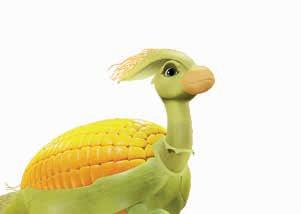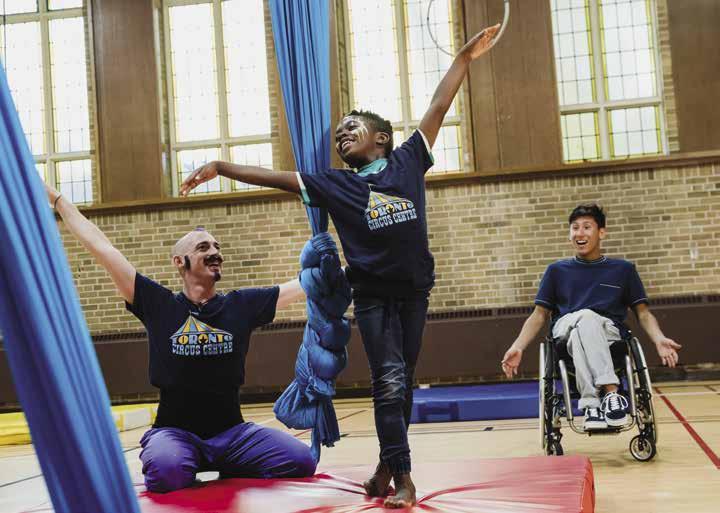
4 minute read
Working it out
Is there value in career-focused content for kids ages four to eight? The teams behind a podcast, a live-actioner and an animated series make their case.
BY: SADHANA BHARANIDHARAN
a question that kids get asked all the time: What do you want to be when you grow up? But here’s one for the adults: What’s the right age for kids to begin exploring career development content?
For some producers, buyers and researchers, the answer is the bridge audience of four- to eight-year-olds. But career 101 for this age group becomes something of a balancing act, drawing on the playfulness of preschool content and the agency of older-skewing fare.
That was certainly the experience of Madrid-based app-maker Lingokids, which launched an educational podcast called Growin’ Up (30 x 15 minutes) in September last year. It was new territory for the company after focusing on short stories and music in its previous titles.
In each episode of Growin’ Up, host Emily Calandrelli provides a crash course on the ins and outs of a particular job, from traditional occupations like teaching, to modern ones like video game design. The challenge was to create a narrative that engages young kids who are more attuned to fiction.
“For kids podcasts, in general, one of the challenges is how to retain the audience’s attention if it’s not pure storytelling,” notes Olga Klepova, Lingokids’ senior podcasts and partnerships manager. To achieve this, each episode switches through a smorgasbord of styles, including catchy jingles, interviews with real-life professionals, thought-provoking questions (Can you become an actor if you’re shy?), jokes and practical advice.
To maintain a kid-friendly vibe, Klepova says the practical component is geared toward skills and hobbies, rather than focusing purely on career as a concept.
Toronto’s Lopii Productions is also breaking into the career content category with its upcoming live-actioner Dream It To Be It (21 x seven minutes), which sees kids meeting professionals, asking questions and even trying out tasks on the job.
“The best kind of learning—and the best kind of TV—allows kids to participate and do,” says Lopii co-founder Rennata Lopez. “We thought it would be great to give [the six-tonine demo] a show where they could actually see kids their age getting the chance to explore and learn more about possible careers.”
Greenlit last year by Canadian pubcasters TVOKids and Knowledge Kids, the docuseries also represents people with disabilities. “Many of our guests and children—along with our teen host, Tai Young—have disabilities, and we found that it really didn't make a difference to our dreamers. They never questioned if anyone had the ability to do anything,” Lopez explains.
The Lopii team attended a Toronto Metropolitan University Children’s Media Lab event in March 2021 where presenters from Canadian rehabilitation hospital Holland Bloorview explained how kids with disabilities don’t see themselves represented accurately, Lopez recalls. The same day, the prodco signed a pledge to do its part to improve this particular brand of representation as part of the hospital’s Dear Everybody campaign against ableism.
“When we were pitched Dream It To Be It, we saw an opportunity to expand our offering of career-focused programming,” says TVOKids executive producer Kirsten Hurd. “We’re also thrilled to feature kids of all abilities participating in a wide range of jobs and activities.”
The regional public broadcaster has launched other career-focused series in recent years, including When I Grow Up and Gabby's Farm. Hurd predicts that demand for such content is poised to grow. “With the proliferation of new high-tech jobs and industries, I can see broadcasters looking for more content that helps kids explore new possibilities.”
However, Lingokids’ Klepova advises producers to “mind the [generation] gap” when creating co-viewing (or co-listening) content, because adults might not be hip to the kids’… lingo. “With new types of jobs related to technology that have emerged, the vocabulary around them has not been fully adopted by today’s grown-ups.”
Estimates of how many new careers will materialize by the time today’s elementary students enter the workforce are varied, but Twin Cities PBS (TPT) in Minnesota is embracing the uncertainty with Mashopolis, a 2D-animated series following young gamers who virtually roleplay different careers.
The public media organization received a Ready to Learn grant from the US Department of Education for this 40 x 30-minute series, which is in early development and set to air in 2025.
Gaming provided a great hook to get today’s four- to eight-year-old digital natives interested in career prep. But what made it a perfect fit is that gaming organically exercises the skills and curriculum the series intends to explore, says Carol-Lynn Parente, a Sesame Workshop alum who now serves as an executive producer on TPT’s Ready To Learn team.
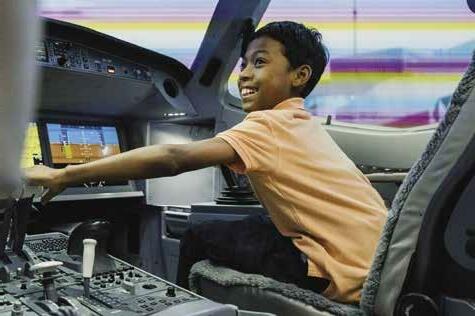
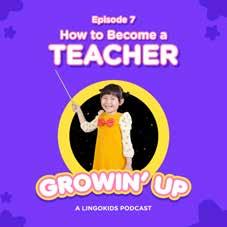
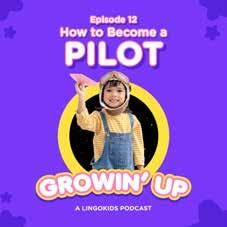
“Gaming is all about using executivefunctioning skills,” Parente explains. “Failing levels, trying again, strategizing, planning—the fun takeaway for kids and adults is that the very act of playing games helps prepare you for a career.” The goal is not to get kids to commit to a future job at age five, but to train them to tap into their desires and interests.
Lesley Goldman, TPT’s chief content officer, says her team followed the viewpoint and research of Jennifer Curry, a professor of counselor education at Louisiana State University who argues that high school is too late to start thinking about career development, and a much earlier start is needed.
Curry’s research solidified TPT’s decision to target elementary students, and the pubcaster conducted a needs assessment in 2020 after securing its production grant.
Across more than 600 families, the survey showed that kids only know about a limited number of occupations, spanning from common (doctor, firefighter) to idealized (YouTuber, pro gamer). “These results strongly guided our thinking, and made it a priority to highlight a super-diverse mix of careers on Mashopolis,” Goldman says.
Much of the target audience for Ready To Learn projects comes from lower-income families, so it’s critical to represent the value of jobs at all levels. The past two years have also introduced a timely relevance for young viewers, Parente says. “What better illustration than a pandemic to demonstrate how important service jobs are to the community?”
